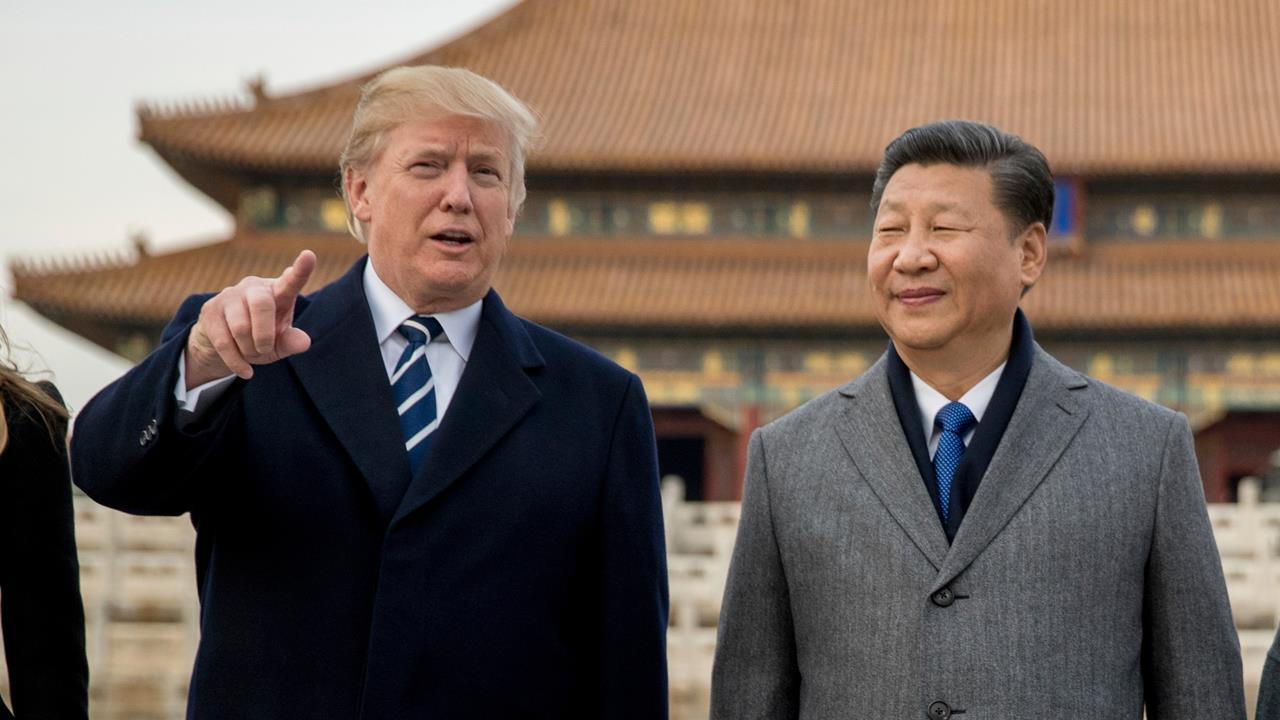Why Trump's latest steps heighten risk of a global trade war
President Ronald Reagan once likened trade wars to the pie fights in old Hollywood comedies. One pie in the face leads to another. And then another.
Pretty soon, Reagan said in a 1986 radio address, "everything and everybody just gets messier and messier. The difference here is that it's not funny. It's tragic. Protectionism becomes destructionism. It costs jobs."
Suddenly, the world's financial markets are gripped by fear that an escalating trade rift between the United States and China — the two mightiest economies — could smear the world with a lot of splattered cream and broken crust. If it doesn't prove tragic, as Reagan warned, it may still inflict far-reaching pain.
The Dow Jones industrial average lost a combined nearly 1,150 points Thursday and Friday after President Donald Trump set his administration on a path to restrict Chinese investment in the United States and impose tariffs on up to $60 billion of Chinese products.
"We should be very worried," said Bryan Riley, director of the conservative National Taxpayer Union's Free Trade Initiative. "It's very possible this could escalate into something that neither country intends."
The trade sanctions that Trump unveiled Thursday are meant to punish Beijing for pilfering technology from American companies or for forcing them to hand over technology in exchange for access to China's market. The announcement followed a seven-month investigation by the Office of the U.S. Trade Representative into the tactics China has deployed to try to overtake American technological supremacy.
"China has not been playing by the rules," said Stephen Ezell, director of global innovation policy at the Information Technology & Innovation Foundation think tank.
Unbowed, China immediately threatened to retaliate if the United States followed through on its actions.
On Friday, Beijing unveiled a broad list of U.S. products — from apples and wine to pork to steel pipe — that could face retaliatory Chinese tariffs in a separate trade spat with Washington. That dispute is over taxes that Trump imposed this month on imported steel and aluminum.
"We don't want a trade war, but we are not afraid of it," said Hua Chunying, a spokeswoman for China's Foreign Ministry.
The stakes are even higher in the standoff over Beijing's technology policies than in the old-school dispute over metals. An industrial nation's ability to harness technology is increasingly vital to healthy economic expansion.
"If China dominates the industries of the future, it will be very difficult for the United States to have an economic future," Peter Navarro, a key White House trade adviser, told reporters.
Trade tensions are rising at a delicate time. The world economy has finally emerged from the shadow of the Great Recession. Major regions are growing in tandem for the first time in a decade. International economic growth is expected to reach a seven-year high of 3.9 percent this year. Last year, global trade expanded 4.2 percent, the most since 2011.
Some trade experts fear that a conflict over technology will erupt into an escalating war of sanctions between the world's two biggest economies — Reagan's destructive pie fight.
The U.S.-China tensions remind economists and trade analysts of the Reagan-era skirmishes between the United States and Japan, which at the time appeared to pose a grave threat to U.S. economic dominance.
"This is 'Back to the Future' — that old '80s film," said Rod Hunter, a former White House trade adviser. Indeed, Trump's top trade negotiator, Robert Lighthizer, is a veteran of the trade battles with Tokyo, having served in the Reagan administration.
To target China, Trump and Lighthizer dusted off a Cold War weapon from the Reagan years: Section 301 of the U.S. Trade Act of 1974, which lets the president unilaterally impose tariffs. The provision was meant for a world in which much of global commerce wasn't covered by trade agreements. But with the arrival in 1995 of the World Trade Organization, Section 301 fell largely into disuse.
In some ways, a hard-nosed approach succeeded against Japan three decades ago. Under U.S. pressure, Tokyo agreed to "voluntary export restraints" to limit auto shipments to the United States. But to bypass the limits, Japanese automakers simply built plants in the American South.
Likewise, the Reagan administration in 1985 strong-armed Japan, Germany, France and Britain to raise their currencies' values to help U.S. manufacturers squeezed by a strong dollar, which makes U.S. goods costlier overseas.
But the United States wielded unusual leverage with Japan. The two countries are close political allies; Japan depends on U.S. military protection. China, by contrast, is a geopolitical rival, far less likely to bend to U.S. pressure.
It's true that China has benefited enormously from access to the American market and has much to lose: Last year, it exported $375 billion more in goods to the United States than it bought in return — a record trade gap that irritates Trump.
But a full-blown trade war would test Trump's fortitude for commercial combat and would certainly hurt many Americans, including some of Trump's supporters. Most directly, U.S. tariffs would raise costs for consumers and businesses.
Trade groups are already lobbying the Trump administration to seek diplomatic solutions to the disputes. China's all-powerful leaders face no such public pressure.
"We live in a society where stakeholders in Congress are going to put a lot of pressure on the administration," said Wendy Cutler, a former U.S. trade official who is vice president at the Asia Society Policy Institute. "In China, they don't."
Still, the 301 sanctions might be enough to prod the Chinese to return to the negotiating table to consider softening their aggressive technology policies.
"If this gets the two countries back to the table to talk about this, then that is a good outcome," said Erin Ennis, senior vice president at the US-China Business Council. "If the idea is to inflict sufficient pain so that China feels it has no choice but to change its policies, then I'm skeptical."




















